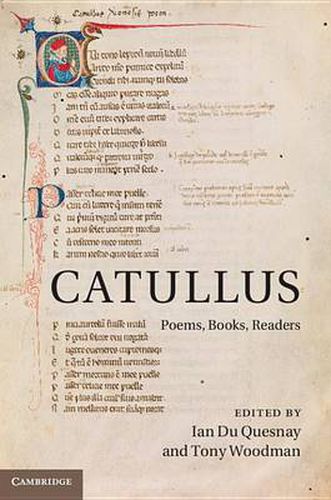Readings Newsletter
Become a Readings Member to make your shopping experience even easier.
Sign in or sign up for free!
You’re not far away from qualifying for FREE standard shipping within Australia
You’ve qualified for FREE standard shipping within Australia
The cart is loading…






In this book, a sequel to Traditions and Contexts in the Poetry of Horace (Cambridge, 2002), ten leading Latin scholars provide specially commissioned in-depth discussions of the poetry of Catullus, one of ancient Rome’s most favourite and best loved poets. Some chapters focus on the collection as a whole and the interrelationship of various poems; others deal with intertextuality and translation, and Catullus’ response to his Greek predecessors, both classical and Hellenistic. Two of the key subjects are the communication of desire and the presentation of the real world. Some chapters provide analyses of individual poems, while others discuss how Catullus’ poetry was read by Virgil and Ovid. A wide variety of critical approaches is on offer, and in the Epilogue the editors provide a provocative survey of the issues raised by the volume.
$9.00 standard shipping within Australia
FREE standard shipping within Australia for orders over $100.00
Express & International shipping calculated at checkout
In this book, a sequel to Traditions and Contexts in the Poetry of Horace (Cambridge, 2002), ten leading Latin scholars provide specially commissioned in-depth discussions of the poetry of Catullus, one of ancient Rome’s most favourite and best loved poets. Some chapters focus on the collection as a whole and the interrelationship of various poems; others deal with intertextuality and translation, and Catullus’ response to his Greek predecessors, both classical and Hellenistic. Two of the key subjects are the communication of desire and the presentation of the real world. Some chapters provide analyses of individual poems, while others discuss how Catullus’ poetry was read by Virgil and Ovid. A wide variety of critical approaches is on offer, and in the Epilogue the editors provide a provocative survey of the issues raised by the volume.